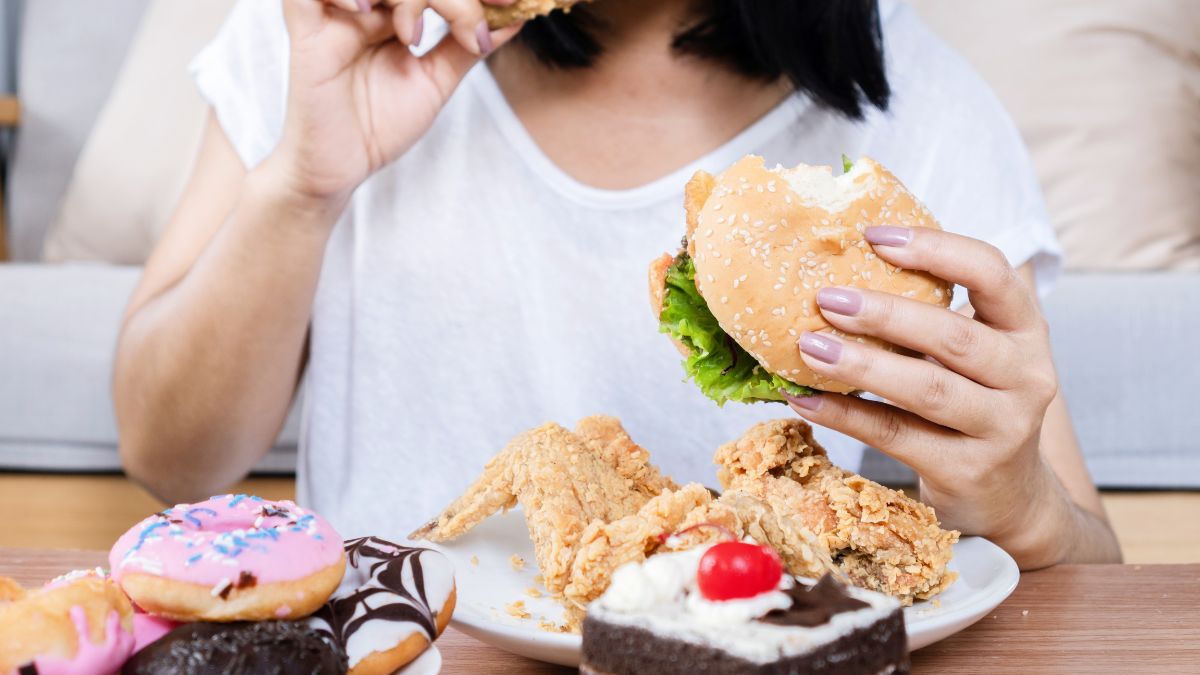Cheerful and happy memories from childhood days are so important for every individual. It signifies many positive impacts on our lives. Interestingly, a recent study reveals how limited positive and happy experiences of childhood can lead to binge eating disorder. Seems shocking, right? But it is actually true and the findings shed light on some interesting observations among today’s young people and the link between binging on loads of food. To know all about the association between positive childhood experiences and binging, read on.
What Does The Study On Binge Eating Reveal?
The University of Houston Department of Health and Human Performance conducted research recently that shared these interesting pieces of information with the world. The findings of the study stated the link between an increase in binge eating, a dip in intuitive eating choices, and a limit in positive childhood experiences. The answers to the study look a bit scary as these memories from childhood are a significant foundation of our lives.
Y. Yoon, the HHP Assistant Professor, shared in a journal named Appetite how binge eating behaviours have a connection with childhood experiences. Experiences from the time when we were small include both positive and negative sides, but most studies emphasise the adverse impacts. All these resulted in the revelation of a limit in positive childhood experiences leading to binging disorders. This research also focused on intuitive eating and its link to childhood experiences.
To conduct the study, the HHP Assistant Professor coordinated with 828 students in the colleges of Texas, according to a report by India Education Diary. Their happy experiences in childhood consisted of the following:
- positive relationships with parents
- interactions with caretakers
- support from others and not just family members
- thoughts on internal and relational safety
- quality of life
Also read: This 5-Step Cheesy Korean Ramen Recipe Goes Perfectly Well With Your K-Drama Binge Sesh
More Findings Of The Study:
Yoon stated how the study revealed the link between a rise in binge eating behaviours of young people when it came to lessening positive childhood experiences. He also pointed out the fact that it decreases the wishes of intuitive eating. A comparison between college students having positive childhood experiences ranging between 0 to 4 and 9 to 10 showed how people with less positive experiences had a 37 per cent to 92 per cent spike in binge-eating issues.
Another important report is the lower score of 3.89 points when it comes to intuitive eating. People who has no such issues of binge eating has better scores in intuitive eating and also better positive childhood experiences.
Also read: As Space Tourism Becomes A Reality, Increasing Space Junk May Become A Nightmare
Binge eating means gorging on loads of food items in a short period of time. It also indicates how a person consumes food without having any proper control to stop eating in between. Most of us are aware of the harsh consequences of binge eating food and how it can majorly have an impact on both our physical and mental health. On the other hand, intuitive eating means when a person consumes food according to the body and its needs. People following intuitive eating have control over limiting intake and choosing what food items to eat. This approach is not dependent on any specific diet but focuses on the body’s demands and choices instead.
What are your opinions on the findings?
Cover Image Courtesy: Canva
For more such snackable content, interesting discoveries and latest updates on food, travel and experiences in your city, download the Curly Tales App. Download HERE.
Good news! We are on WhatsApp! Subscribe to Curly Tales WhatsApp Channel to stay up-to-date with exclusive content and BTS. Join HERE.

